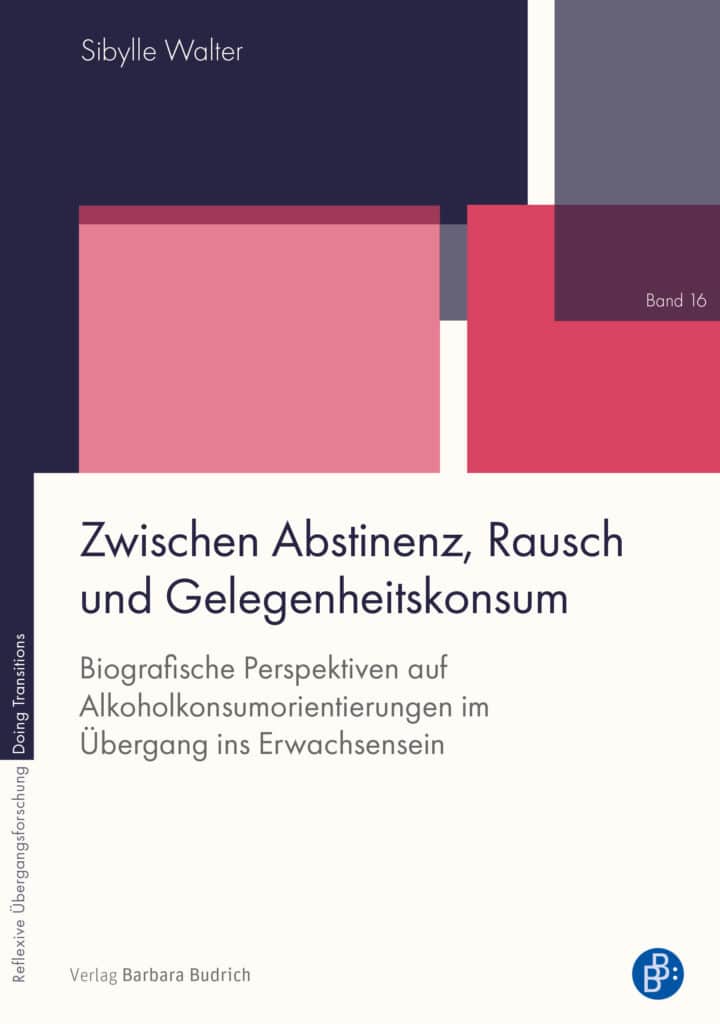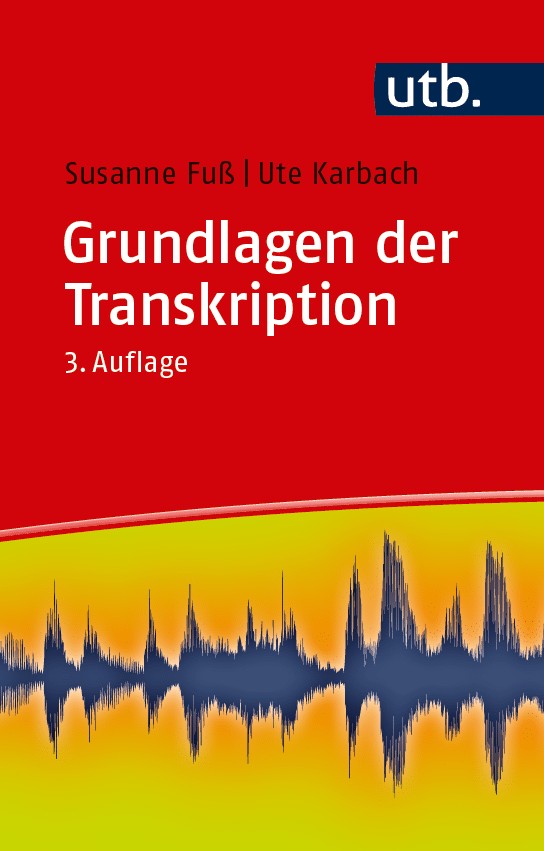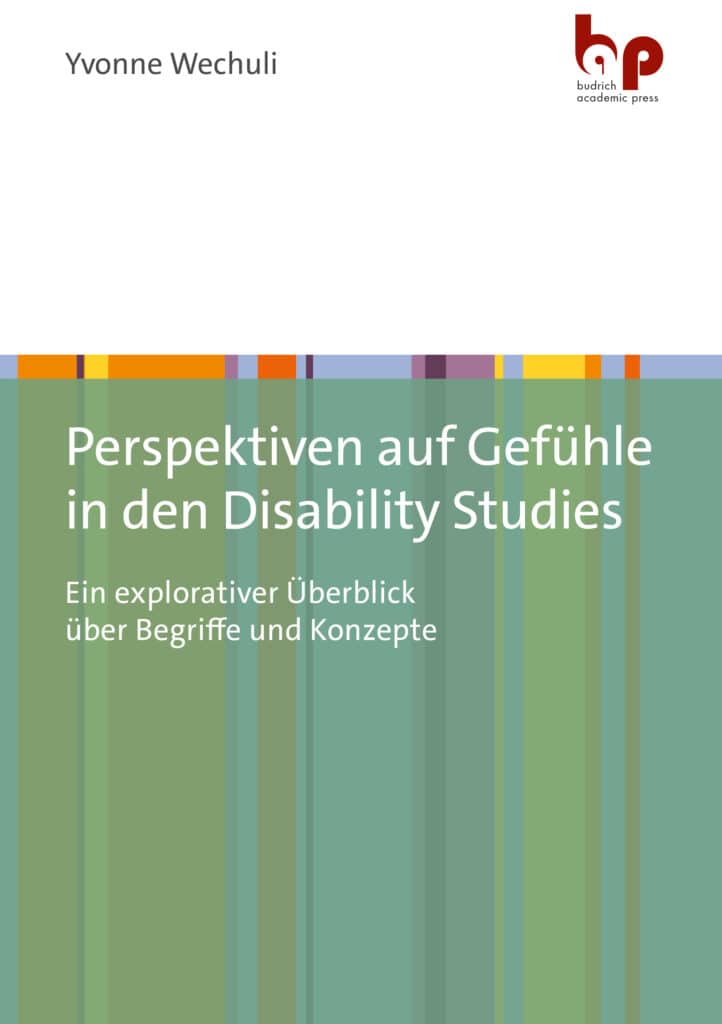Informationen zum Buch
Home » Publications » Women, Biomedical Research and Art
Women, Biomedical Research and Art
A Relationality in Tension
Erscheinungsdatum : 14.06.2021
36,99 € - 46,00 €
Beschreibung
Applying phenomenological notions of the body, this study investigates intersectional vulnerabilities, socio-geographical and racial injustices, as well as the potential of trauma in reproductive medicine, human trafficking and black-market organ trades in a local and global context. The author develops a post-colonial critique of what she calls ‘flesh piracy’ through the fine-tuned analyses of individual embodied experiences and also by inviting readers to experiment with embodied exercises, thereby providing hands-on tools that can emphasize dignity and integrity, and support self-efficacy and human rights in the everyday lives of (not only) affected populations. Tying diverse readers’ embodied selves to developments in science, art, diverse media, politics and global economics, this book provides a well-rounded and accessible study of injustices and individual opportunities for solidarity in the highly complex field of the life sciences.
This publication analyses inconsistencies and continuities between experiences, embodiment, injustices and representations in biomedical practice concerning women. It calls influential trends in biomedicine into question and employs phenomenological notions of Leib, as the body we are and as primary site of knowing. It furthermore investigates art-practice and practice-led research as political and pedagogical tools to engage diverse populations with complex fields, such as biomedical practice. The fieldwork for this publication involved analyzing images and art, participatory art production and analyzing interdisciplinary texts and poetry. It also included conducting semi-structured conversations with experts in England and Germany. As an interdisciplinary, multi-sited, bi-lingual and partly non-verbal project, this research project didn’t follow a ‘conventional research path’, but followed emergent ideas, individual narratives, images, art and technologies and investigated their interrelatedness. This study identifies fragmentation and mapping as powerful strategies within the discursive space of biomedicine. It argues that once ‘globalization’ has harvested the life from less powerful regions, that which remains to be harvested is that which we are, literally. Thus, harvesting the world includes geographic and somatic localities; it includes somatic harvesting and what the author calls flesh piracy. Terms coined in this study are ‘flesh piracy’ and ‘Ausverleibung’ as well as an extended reading of ‘relationscapes.’ The author comes to the understanding that we live in a time when humans cage and harvest humans, their flesh, their data, their lives. It is here where the terms ‘flesh piracy’ and ‘Ausverleibung’ as well as an extended reading of ‘relationscapes,’ support this statement.
Table of contents + reading sample
The Author:
Solidarity researcher Ninette Rothmüller is currently based at the Orfalea Center for Global and International Studies at the University of California in Santa Barbara, USA.
Download for free: publicity leaflet (pdf)
The Target Group:
Researchers and lecturers in gender studies, arts, biomedical research and ethics, feminist phenomenology, science studies; human rights activists
Zusätzliche Informationen
| ISBN | 978-3-8474-2439-0 |
|---|---|
| eISBN | 978-3-8474-1574-9 |
| Format | A5 |
| Scope | 369 |
| Year of publication | 2021 |
| Date of publication | 14.06.2021 |
| Edition | 1. |
| Language | Englisch |
| Publisher | |
| Series | |
| Volume | 11 |
2 Bewertungen für Women, Biomedical Research and Art
Autor*innen
Beschreibung
Beschreibung
Applying phenomenological notions of the body, this study investigates intersectional vulnerabilities, socio-geographical and racial injustices, as well as the potential of trauma in reproductive medicine, human trafficking and black-market organ trades in a local and global context. The author develops a post-colonial critique of what she calls ‘flesh piracy’ through the fine-tuned analyses of individual embodied experiences and also by inviting readers to experiment with embodied exercises, thereby providing hands-on tools that can emphasize dignity and integrity, and support self-efficacy and human rights in the everyday lives of (not only) affected populations. Tying diverse readers’ embodied selves to developments in science, art, diverse media, politics and global economics, this book provides a well-rounded and accessible study of injustices and individual opportunities for solidarity in the highly complex field of the life sciences.
This publication analyses inconsistencies and continuities between experiences, embodiment, injustices and representations in biomedical practice concerning women. It calls influential trends in biomedicine into question and employs phenomenological notions of Leib, as the body we are and as primary site of knowing. It furthermore investigates art-practice and practice-led research as political and pedagogical tools to engage diverse populations with complex fields, such as biomedical practice. The fieldwork for this publication involved analyzing images and art, participatory art production and analyzing interdisciplinary texts and poetry. It also included conducting semi-structured conversations with experts in England and Germany. As an interdisciplinary, multi-sited, bi-lingual and partly non-verbal project, this research project didn’t follow a ‘conventional research path’, but followed emergent ideas, individual narratives, images, art and technologies and investigated their interrelatedness. This study identifies fragmentation and mapping as powerful strategies within the discursive space of biomedicine. It argues that once ‘globalization’ has harvested the life from less powerful regions, that which remains to be harvested is that which we are, literally. Thus, harvesting the world includes geographic and somatic localities; it includes somatic harvesting and what the author calls flesh piracy. Terms coined in this study are ‘flesh piracy’ and ‘Ausverleibung’ as well as an extended reading of ‘relationscapes.’ The author comes to the understanding that we live in a time when humans cage and harvest humans, their flesh, their data, their lives. It is here where the terms ‘flesh piracy’ and ‘Ausverleibung’ as well as an extended reading of ‘relationscapes,’ support this statement.
Table of contents + reading sample
The Author:
Solidarity researcher Ninette Rothmüller is currently based at the Orfalea Center for Global and International Studies at the University of California in Santa Barbara, USA.
Download for free: publicity leaflet (pdf)
The Target Group:
Researchers and lecturers in gender studies, arts, biomedical research and ethics, feminist phenomenology, science studies; human rights activists
Bibliography
Zusätzliche Informationen
| ISBN | 978-3-8474-2439-0 |
|---|---|
| eISBN | 978-3-8474-1574-9 |
| Format | A5 |
| Scope | 369 |
| Year of publication | 2021 |
| Date of publication | 14.06.2021 |
| Edition | 1. |
| Language | Englisch |
| Publisher | |
| Series | |
| Volume | 11 |
Produktsicherheit
Bewertungen (2)
2 Bewertungen für Women, Biomedical Research and Art
-
Bewertet mit 5 von 5
Stefan Maier –
Ninette Rothmüller’s book is interdisciplinary in the true sense. I cannot think of any academic discipline that could not be helpfully informed by this book. Additionally, by including body exercises that every reader is asked to practice while reading, Rothmüller pulls the seemingly scientific topic (biomedicine) right into people’s lives. (Gendered) injustices caused by what Rothmüller calls ’flesh piracy’ and by intersectional oppression that violates the flesh does not happen somewhere else – it happens here and now, and we are all part of a society that multiplies disadvantages.
While the analytical chapters speak to scholars from various disciplines and lend themselves as teaching materials, the introduction (called Prelude) and the final chapter (called Showdown) are uncannily honest, good reads, even if one is not reading the whole book. This book changed my perspective on the complexity of medical developments in the life sciences and it increased my curiosity about how art can support critical engagement with complex scientific developments, but likewise also serve to hide injustice.
-
Bewertet mit 5 von 5
Greg Brown –
Excellent and eye-opening book. I particularly appreciated the chapter on Orlan. As a vocal musician issues of body as medium are central to my work as well — this new perspective on body as art (and Rothmüller’s discussion around it) were enlightening.









Stefan Maier –
Ninette Rothmüller’s book is interdisciplinary in the true sense. I cannot think of any academic discipline that could not be helpfully informed by this book. Additionally, by including body exercises that every reader is asked to practice while reading, Rothmüller pulls the seemingly scientific topic (biomedicine) right into people’s lives. (Gendered) injustices caused by what Rothmüller calls ’flesh piracy’ and by intersectional oppression that violates the flesh does not happen somewhere else – it happens here and now, and we are all part of a society that multiplies disadvantages.
While the analytical chapters speak to scholars from various disciplines and lend themselves as teaching materials, the introduction (called Prelude) and the final chapter (called Showdown) are uncannily honest, good reads, even if one is not reading the whole book. This book changed my perspective on the complexity of medical developments in the life sciences and it increased my curiosity about how art can support critical engagement with complex scientific developments, but likewise also serve to hide injustice.
Greg Brown –
Excellent and eye-opening book. I particularly appreciated the chapter on Orlan. As a vocal musician issues of body as medium are central to my work as well — this new perspective on body as art (and Rothmüller’s discussion around it) were enlightening.